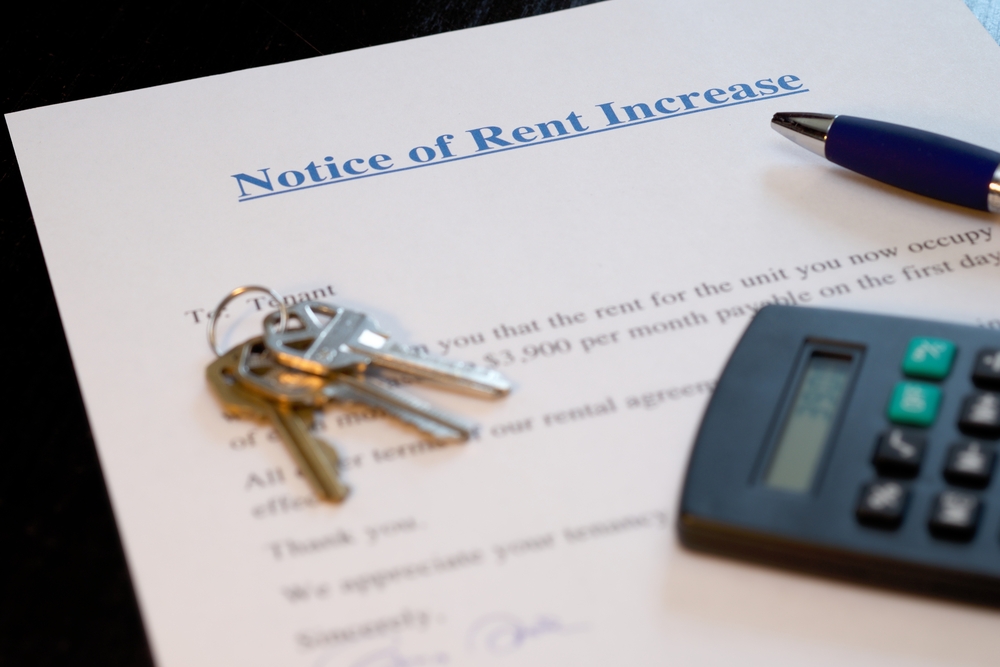
How much can a landlord increase rent? A guide for landlords and tenants
Rent hikes are an inevitable part of the rental property landscape.
Whether you’re a landlord or tenant, navigating the ins and outs of rent increase regulations is essential.
But how much can a landlord increase rent?
If you’re curious about the limits on rent bumps and want to know what’s acceptable and what isn’t, we’ll break it down for you.
Factors that affect rent increases
- Rent increases can happen for a myriad of reasons. A few examples include:
- Market conditions: Local supply and demand, vacancy rates, and rental trends in the area can significantly impact rent increases.
- Property location: The desirability of a property’s neighbourhood, proximity to amenities, and accessibility to transportation can influence rent adjustments.
- Property improvements: Upgrades, renovations, or new amenities added to the property can justify higher rent.
- Maintenance and operational costs: Increases in property taxes, insurance, utilities, or maintenance expenses can lead to higher rent to cover these expenses.
- Inflation and cost of living adjustments: As the cost of living rises, rent may be adjusted to keep pace with inflation.
- Tenant history and relationship: A tenant’s payment history, lease compliance, and overall relationship with the landlord can play a role in rent increases.
- Comparable properties: Rent adjustments may be influenced by the rents of similar properties in the area, especially if the current rent is below market value.
- Lease terms: The terms of the lease agreement, such as the duration and any rent increase provisions, can affect when and how much the rent can be increased.
- Economic factors: Broader economic conditions, such as job growth, wages, and housing affordability, can also impact rent adjustments.
How much can a landlord increase rent?
There is no specific percentage or cap on how much a landlord can increase rent – but there are some rules and restrictions in place to make sure the rent increases are fair.
Ultimately, the amount of rent increase must be reasonable. The landlord cannot arbitrarily raise the rent to any amount they choose. The proposed rent increase should be comparable to the current market for similar properties. Landlords should look at the median rent around the property when considering rent rises, alongside the features of their property that would affect the proposed increase, such as the property’s size and facilities.
As a tenant, if you’re wondering how much can a landlord increase rent, the right place to start is by looking at median prices around you.
What are the legal limits on rent increases?
Western Australia’s Residential Tenancies Act sets distinct guidelines for fixed-term agreements and periodic tenancies.
In the case of periodic tenancies, landlords can bump up the rent every 6 months, but they must provide tenants with a 60-day written notice, detailing the amount of the increase and its effective date. If these conditions aren’t met, tenants can keep calm and carry on without paying the new rent.
For fixed-term tenancy agreements, rent hikes are only permissible if the lease permits them. These leases must explicitly state the increase amount or provide a calculation method. Just like periodic tenancies, fixed-term leases can only see rent increases 6 months after commencement. And when a tenant completes their fixed-term agreement and signs a new lease on the same property, they can enjoy a rent increase-free first 30 days.
Negotiating rent increases
Navigating the choppy waters of rent negotiations can be a daunting task for both landlords and tenants.
For landlords, the key is to remain transparent and communicative, shedding light on the reasons behind the rent increase. Presenting evidence can make tenants more receptive to the proposed increase.
Tenants, on the other hand, must know their rights and gear up for negotiation. Should the proposed rent increase seem too steep, tenants can bargain for a lower amount or suggest alternatives like a longer lease.
When faced with a rent increase that seems out of line, tenants have the power to fight back. Tenants can apply to the Magistrate’s Court for an order to halt the increase. But remember—tenants have a 30-day window from receiving the written notice to make their case before the court.
In pursuit of fairness, the Magistrate’s Court weighs a variety of factors to determine the reasonableness of rent increases, such as property value, upkeep costs, property condition, and the value of its contents.
Common mistakes to avoid
Embarking on rent increase negotiations can be an intricate dance, and both landlords and tenants should steer clear of common missteps. Here’s a list of pitfalls to avoid:
For landlords:
- Failing to recognise the distinct obligations for different rental agreements.
- Overlooking legal requirements, such as providing the mandatory 60-day notice. Remember, if you don’t adhere to the conditions, tenants are not obligated to pay the new rent.
- Lacking transparency with tenants about the reasons for the rental increase.
For tenants:
- Neglecting to understand their rights and engage in negotiations with landlords.
- Overlooking the conditions for increased payments in their rental agreements, especially when entering a long-term fixed lease.
- By avoiding these blunders, both parties can ensure a smoother negotiation process and foster a harmonious landlord-tenant relationship.
Alternatives to rent increases
Rent increases are not the only option for landlords to increase their income from a property.
They can also consider other options like charging for additional services or upgrading the property to attract higher-paying tenants.
For tenants, there are also alternatives to accepting a rent increase. They can try negotiating with the landlord for a lower increase or consider moving to more affordable comparable properties.
Need some help navigating a rental increase?
Rent increases can potentially put a strain on the relationship between landlord and tenant, but maintaining a harmonious connection is crucial.
Landlords should honour tenancy agreements and engage in open dialogue, while tenants should empathise with their landlord’s needs.
Enlisting the help of an experienced property manager can work wonders in fostering mutual respect and arriving at a compromise that leaves everyone satisfied.
We have over three decades of experience providing expert property management in Perth and beyond. We know how complicated rental increases can be, and we’re always happy to help new clients manage their property situation. If you’re wondering how we can help, contact our team today!
Related Articles

Where to change addresses when moving house

Where to eat in Perth - our top picks


